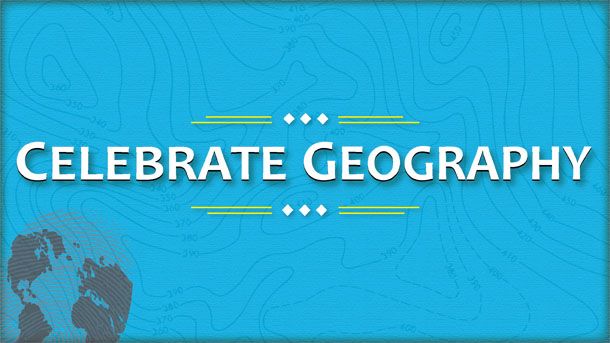Geography Awareness Week starts November 15 and the theme for 2015 is “Explore! The Power of Maps”
Established by presidential proclamation more than 25 years ago, this annual public awareness program organized by National Geographic Education Programs (NGEP) encourages citizens young and old to think and learn about the significance of place and how we affect and are affected by it.
Geography is the study of places and the relationships between people and their environments. Geographers explore both the physical properties of Earth’s surface and the human societies spread across it. They also examine how human culture interacts with the natural environment and the way locations and places can have an impact on people. Geography seeks to understand where things are found, why they are there, and how they develop and change over time.
Unfortunately, geography is neither widely taught nor well-taught in our schools today. Social sciences as a whole have been de-emphasized in schools in the last decade. Within the subject of geography, there is a disproportionate focus on dates, events and individuals, while little to no attention is paid to the functioning of human-environment systems or geographic reasoning. In fact, the United States lags behind the rest of the world in both the quality and quantity of every aspect of geography education.
GeoWeek hopes to not only raise awareness of this deficiency and attempt to reverse the trend in schools but to provide materials to support better geography education in the United States. National Geographic works with teachers and other content experts to develop activities for the classroom, home or community. The activities include games, lessons and experiential projects. Guides and educational materials for these activities are available for free at the Geography Awareness Week website


